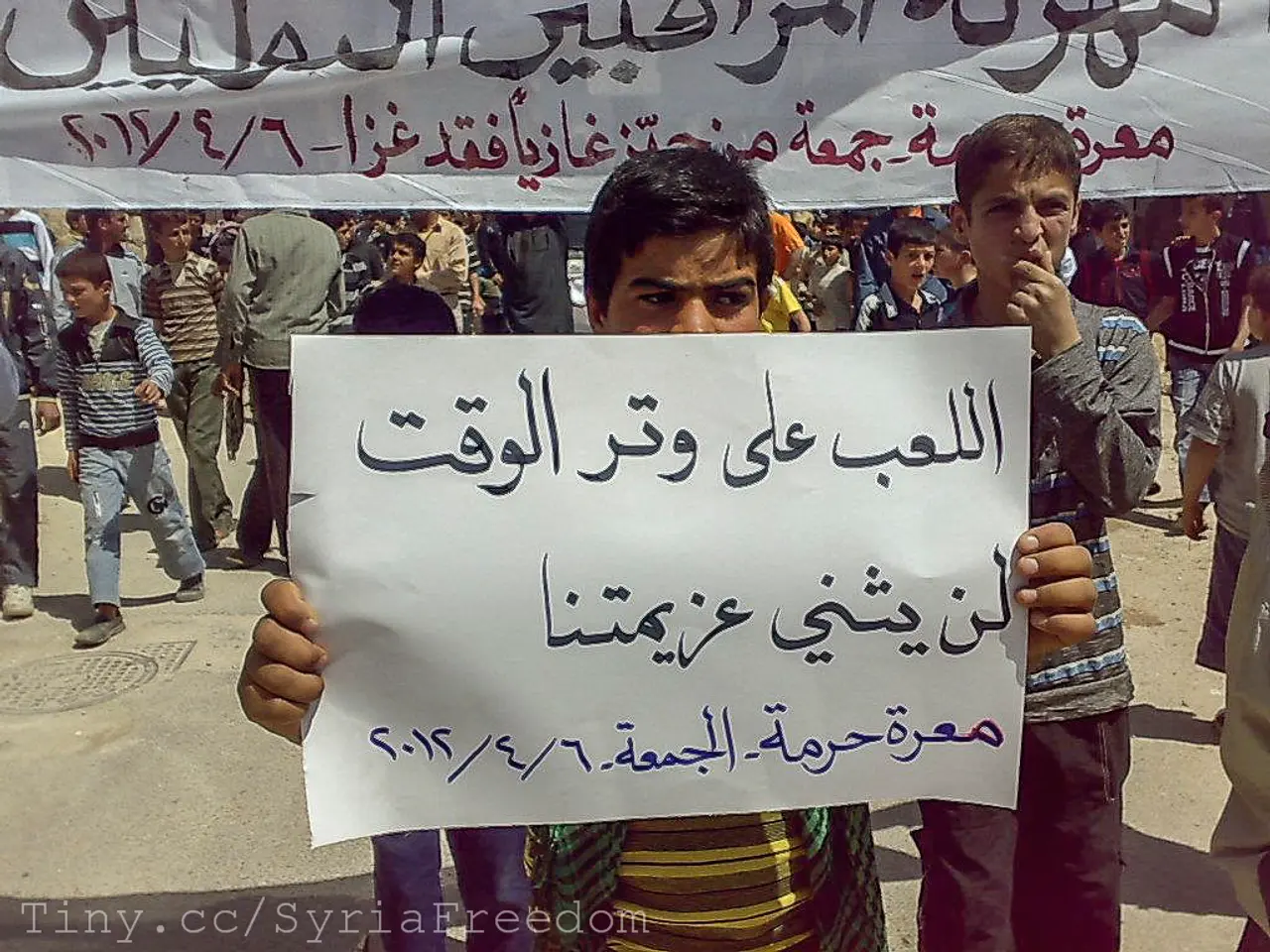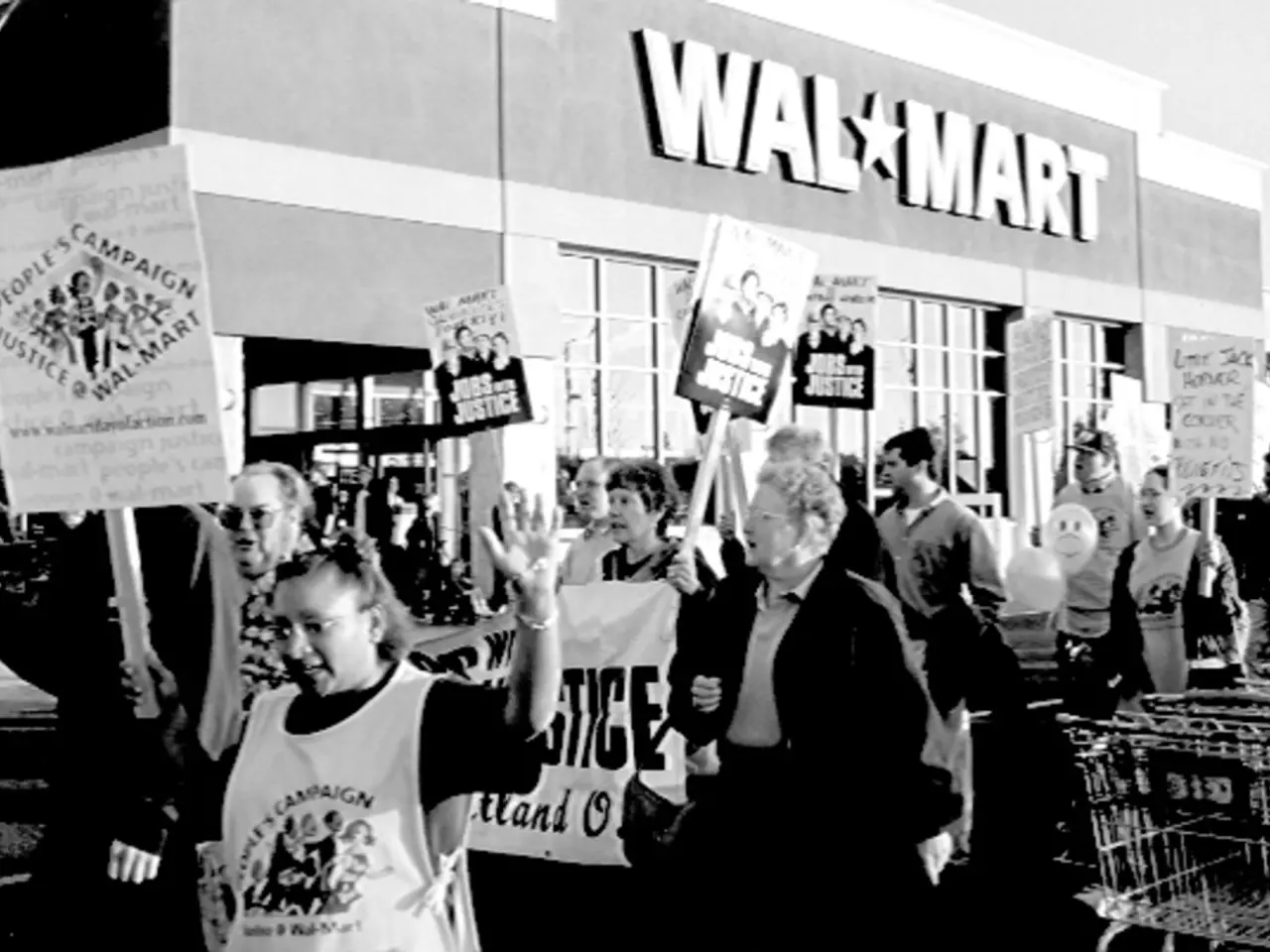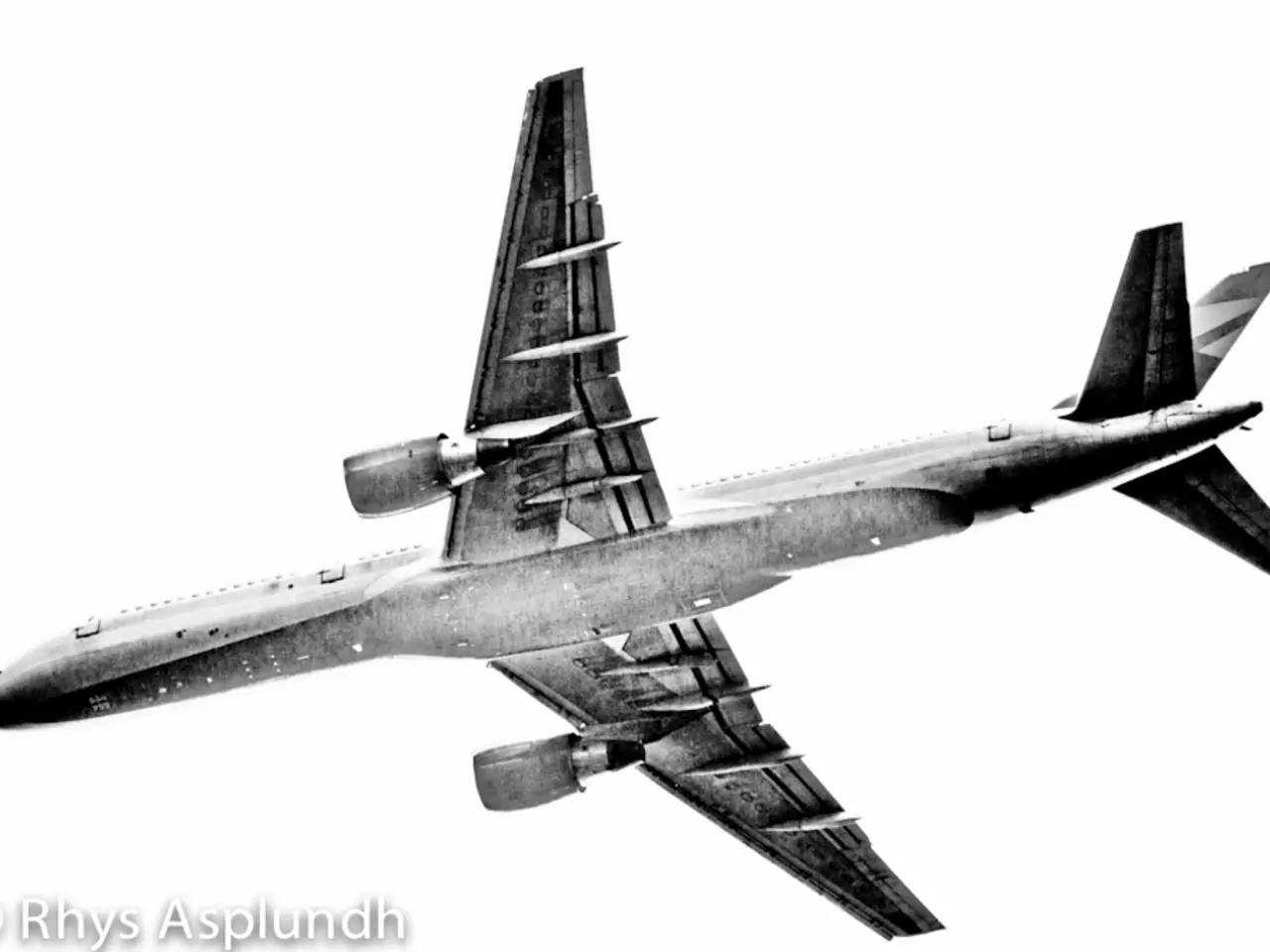Four individuals lost their lives during protests against increased fuel prices in Angola on Monday, as reported by local police.
In the heart of Africa, the capital city of Luanda, Angola, has been marred by a wave of unrest following a government decision to raise fuel prices. The government, which is Africa's second-largest oil producer, increased gasoline prices from 300 to 400 kwanzas ($0.33 to $0.43) per litre on July 1, sparking outrage across the population.
The initial spark for the unrest was a three-day strike by the National Association of Taxi Drivers of Angola (ANATA), who were protesting against the fuel price hike and a concurrent 50% increase in fares. As the days passed, the protests escalated into widespread violence, with criminal elements exploiting the situation to attack passing vehicles, loot shops, banks, and other establishments, and create road blockades that paralyzed traffic in Luanda and beyond.
The violence resulted in a tragic toll, with official reports stating that four people died during the initial protests and unrest in the capital on Monday. As the chaos spread to other provinces like Huambo, Benguela, and Huila, the overall death toll rose to 22 by July 30, 2025. At least 197 injuries were reported during the unrest, and more than 1,200 arrests were made for vandalism, looting, and related crimes.
The ANATA taxi association has distanced itself from Monday's violence, with the deputy commissioner, Mateus Rodrigues, reporting four deaths but not specifying how they occurred. The association's statement indicates that the taxi drivers' voice reflects the outcry of the Angolan people, who are struggling with economic hardship amidst the country's fabulous oil riches.
The Angolan Interior Minister, Manuel Homem, confirmed that public security has stabilized recently, with transportation services resuming and the government emphasizing that protests must not escalate into violent acts. The police spokesman stated that police forces are on the streets, equipped with necessary resources, and are responding to restore order and intervening where there are still disturbances.
Despite the government's efforts, protests against the fuel hike continue. Around 2,000 people demonstrated against the price increase on Saturday, with protesters attacking public buses and private vehicles. The MPLA party, led by President João Lourenco, has ruled Angola since its independence from Portugal in 1975.
As the country grapples with the aftermath of the unrest, the government faces mounting pressure to address the root causes of the public's discontent and find solutions to alleviate the economic burden on its citizens.
- The escalating violence in Luanda, triggered by the government's decision to increase fuel prices, has raised concerns about the general health and well-being of the Angolan population, given the economic hardships they face amidst the country's wealth in oil resources.
- The ongoing protests against the fuel price hike in Angola, amidst the political backdrop of Africa's second-largest oil producer, have highlighted the need for the government to focus on addressing the root causes of public dissatisfaction and implementing policies that ensure the prosperity of all its citizens.






